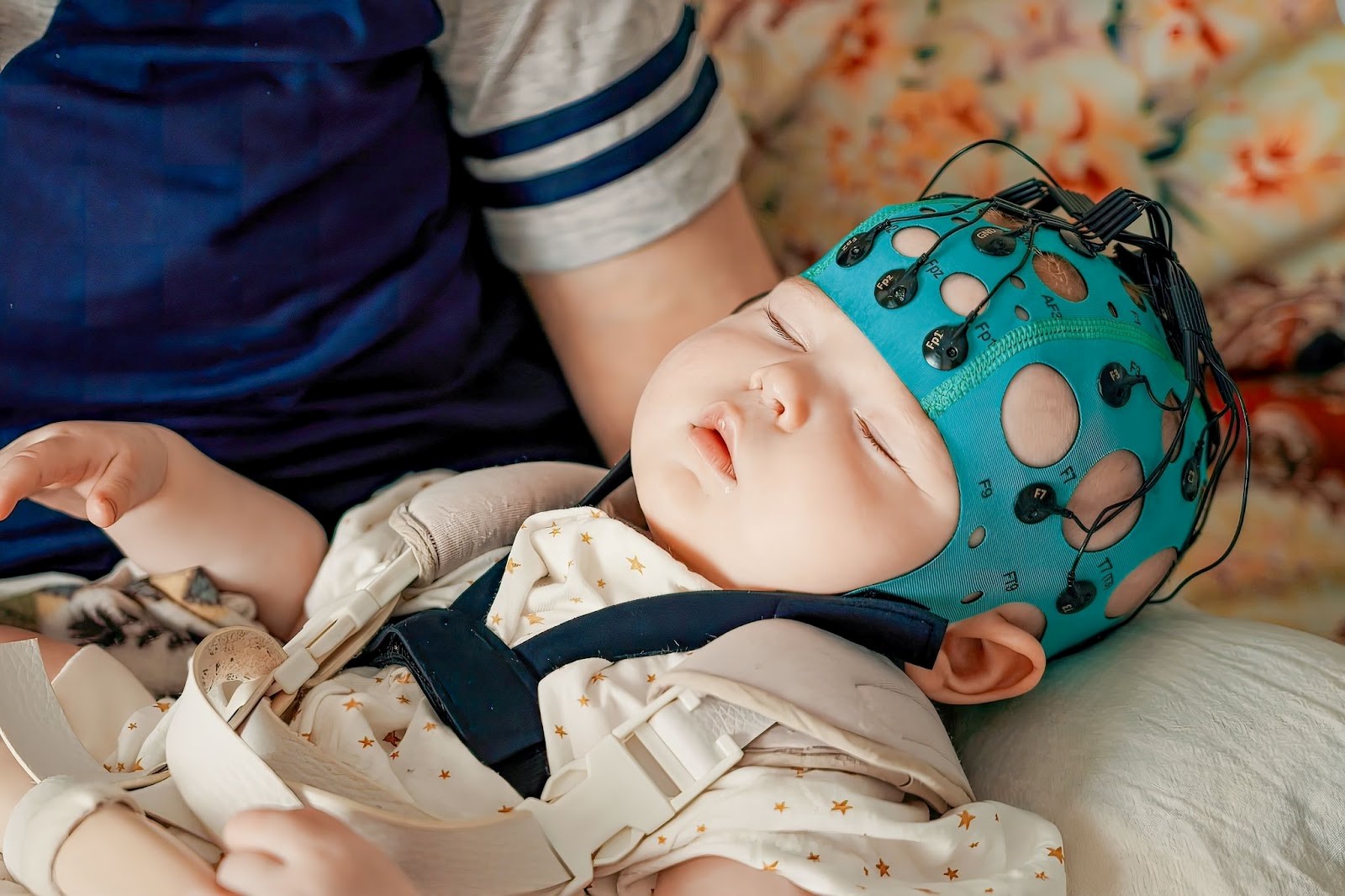
November is National Epilepsy Awareness Month, an opportunity to raise awareness about epilepsy and its impact on children and their families.
What is Pediatric Epilepsy?
Pediatric epilepsy is a disorder of the brain that causes repeated seizures in children. A seizure occurs due to sudden, abnormal bursts of electrical activity in the brain, disrupting normal function. While some children may experience one seizure due to illness or fever, a diagnosis of epilepsy requires at least two unprovoked seizures.
Recognizing Seizure Signs in Children
Seizures in children can appear differently based on the area of the brain affected. Common types of seizures in children include:
- Generalized Tonic-Clonic Seizures (Grand Mal):
– Symptoms: Loss of consciousness, stiffened muscles, followed by rhythmic jerking.
– Often lasts 1–3 minutes. - Absence Seizures:
– Symptoms: Brief lapses in attention, staring spells, or subtle blinking.
– These seizures may be mistaken for “zoning out” and are common in school-aged children. - Focal Seizures (Partial Seizures):
– Symptoms: Involves one part of the brain and may cause twitching, repetitive movements, or sensory changes.
– May lead to confusion or memory lapses. - Febrile Seizures:
– Symptoms: Associated with high fever in infants and young children.
– These seizures are typically not related to epilepsy and are often outgrown.
Common Triggers for Pediatric Seizures
Understanding seizure triggers is crucial for managing pediatric epilepsy. Common triggers include:
- Missed sleep or irregular sleep patterns
- Stress, excitement, or anxiety
- Illness or fever
- Missed doses of medication
- Flashing lights or rapidly changing visual patterns
Parents are encouraged to keep a seizure diary to record episodes, symptoms, and potential triggers, which can help pediatric neurologists determine the best course of action.
When to Seek a Pediatric Neurologist
If your child experiences one or more seizures, it is important to consult a pediatric neurologist, a doctor who specializes in diagnosing and managing neurological conditions in children.
Contact a pediatric neurologist if your child:
- Has had two or more unprovoked seizures.
- Experiences seizures that last longer than five minutes.
- Struggles to recover fully after a seizure.
- Develops new or worsening symptoms, such as confusion or loss of developmental milestones.
Supporting Families Managing Pediatric Epilepsy
Caring for a child with epilepsy can feel overwhelming, but families are not alone. A supportive network, along with proper education and resources, can make a tremendous difference.
Here are some ways to support families managing pediatric epilepsy:
- Educate Teachers and Caregivers: Ensure your child’s school staff and caregivers understand epilepsy and are prepared to respond to seizures. Work with the school to develop a Seizure Action Plan tailored to your child’s needs.
- Encourage Peer Awareness: Many children feel isolated due to misconceptions about epilepsy. Helping classmates understand the condition can reduce stigma and foster inclusion.
- Connect with Support Groups: Joining local or online support groups for parents of children with epilepsy provides a valuable space to share experiences and advice.
- Empower Through Knowledge: Use resources like the Epilepsy Foundation to stay informed about treatments, triggers, and advancements in pediatric epilepsy care.
Helping Children with Epilepsy Thrive
With proper medical care and lifestyle adjustments, many children with epilepsy live full, active lives. Here are some steps to ensure their well-being:
- Follow Medication Plans: Anti-seizure medications are often effective in reducing or eliminating seizures when taken as prescribed.
- Create a Balanced Routine: Ensure your child gets enough sleep, maintains a healthy diet, and manages stress.
- Schedule Regular Checkups: Regular visits to a pediatric neurologist allow for ongoing evaluation and adjustments to treatment if needed.
- Encourage Confidence: Support your child’s participation in school, hobbies, and social activities to help them feel empowered and included.
If you have concerns about your child’s seizures or would like guidance from a pediatric neurologist, contact our office at 404-252-4611. Our team is here to provide compassionate care and support for your family.
